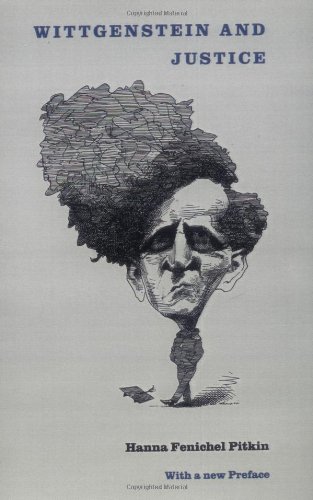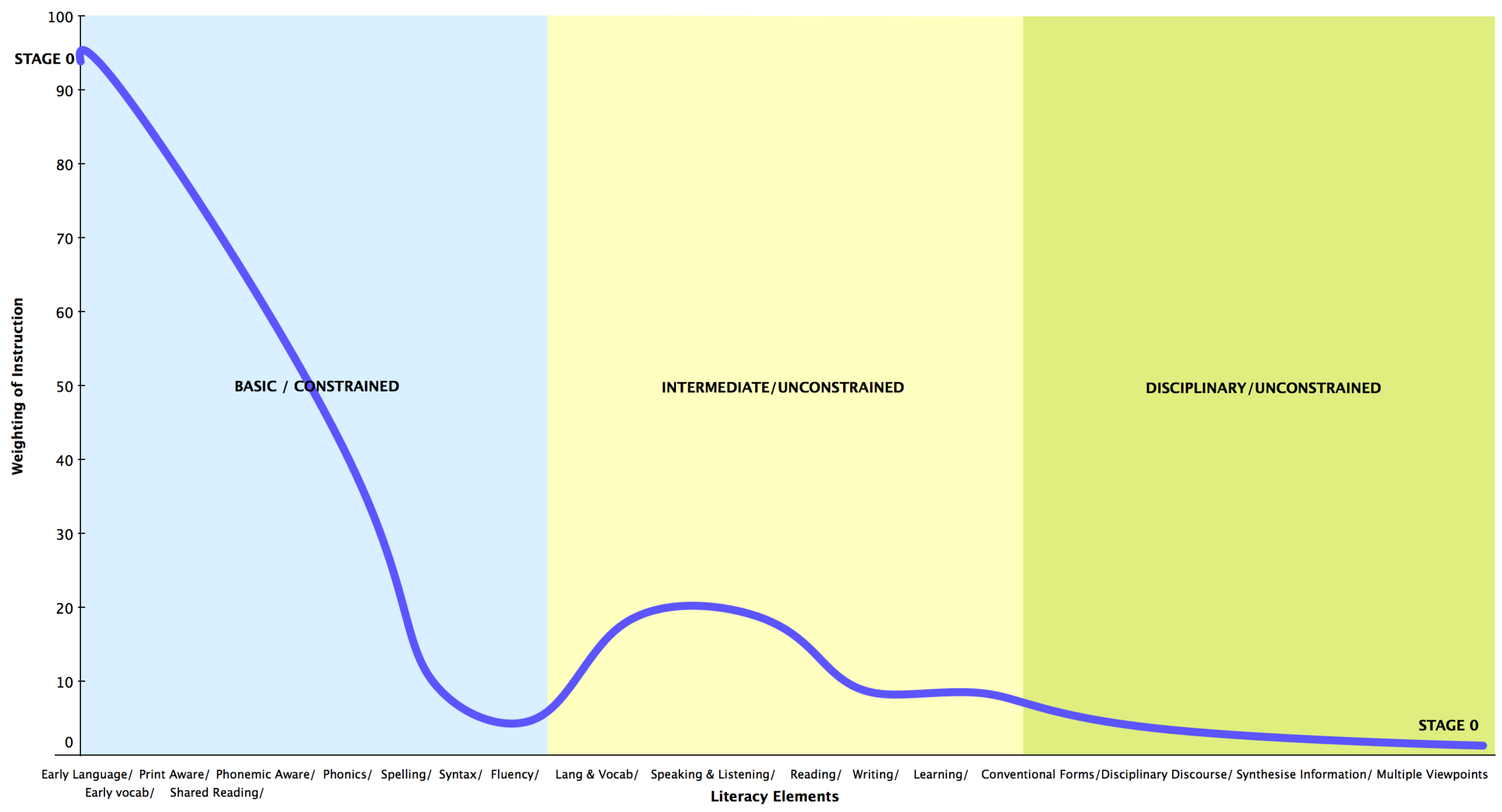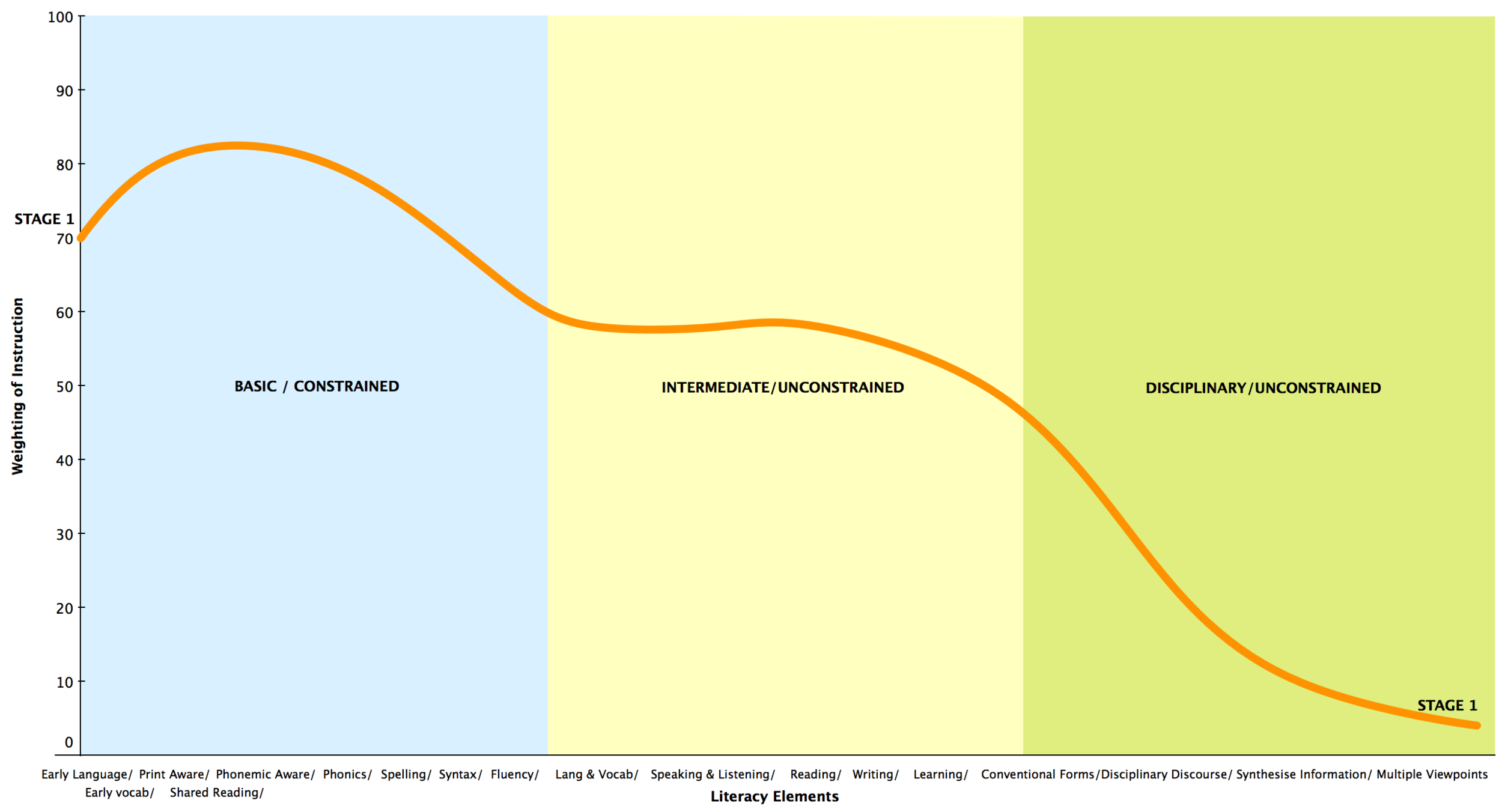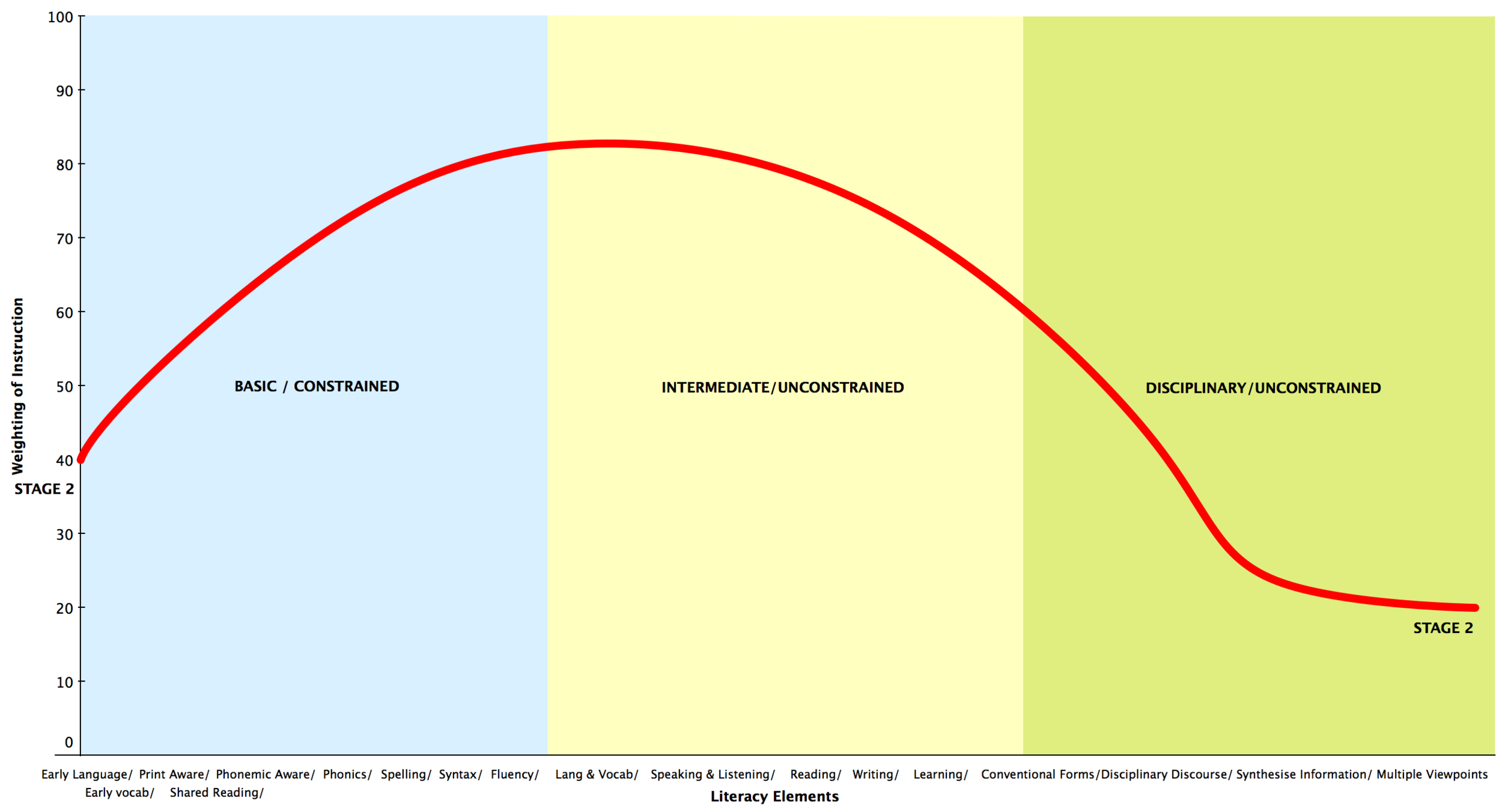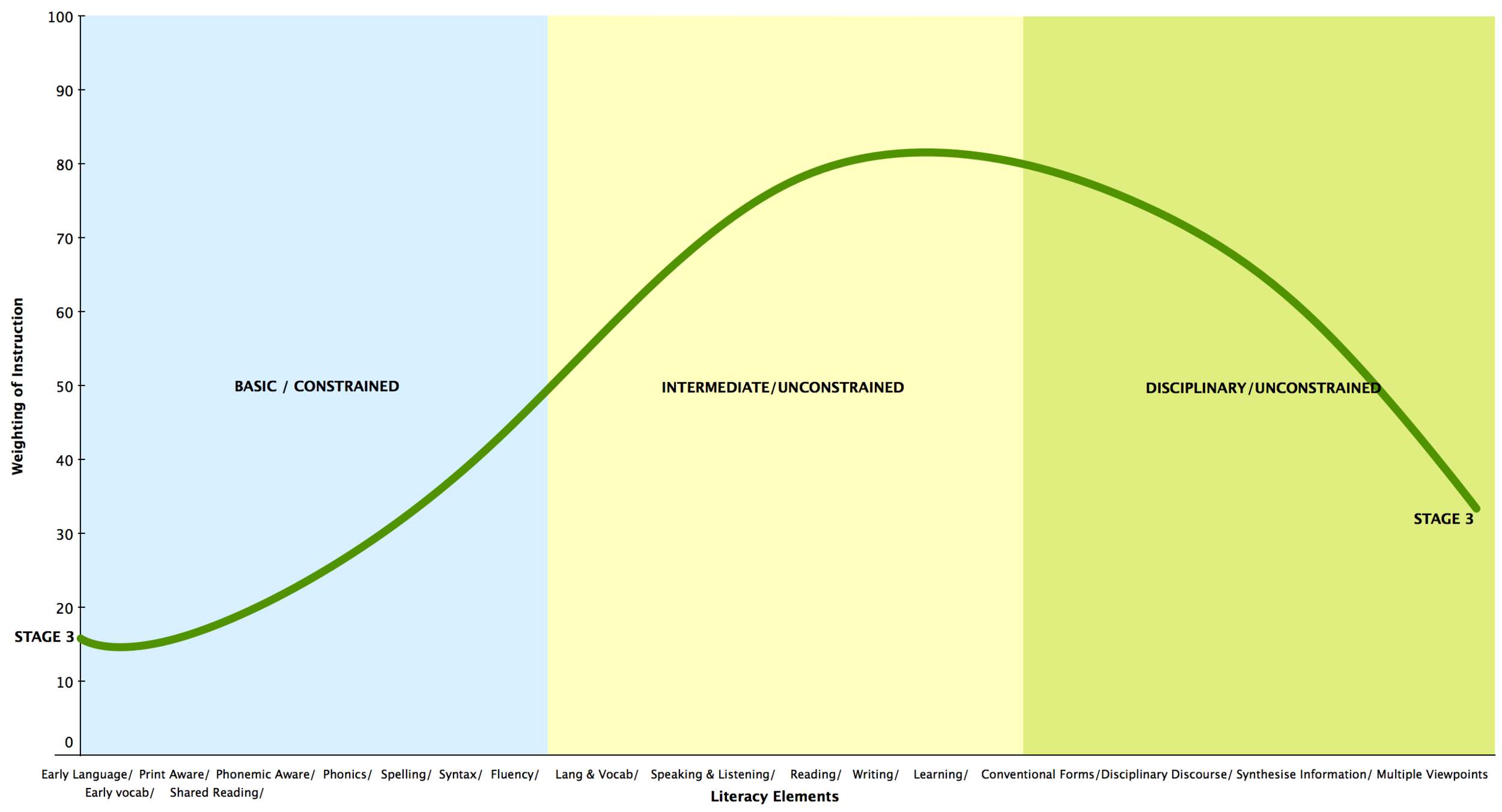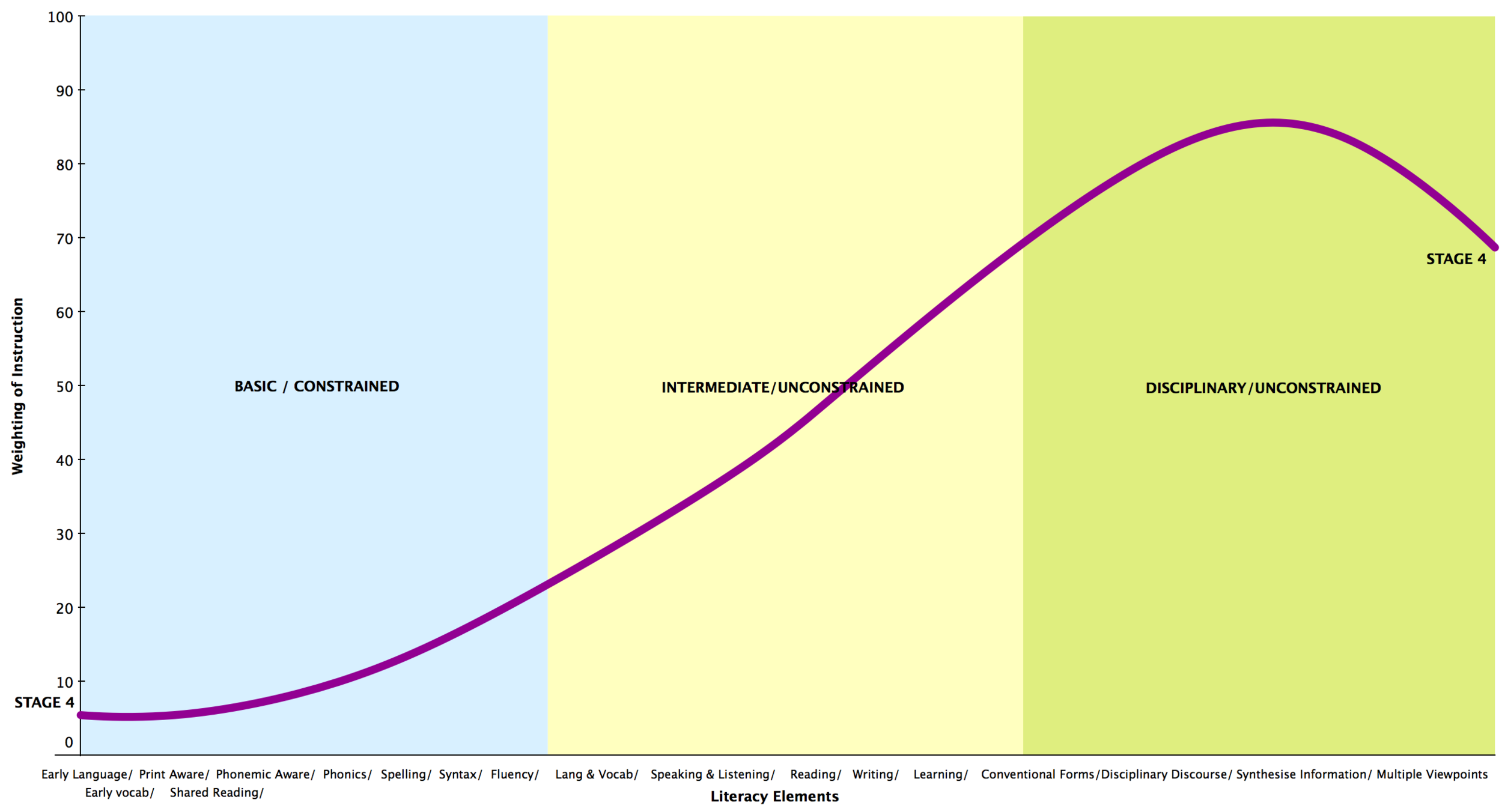The following paragraphs and graphs have been added to the Stages of Literacy Development page ... Explore an enjoy!
Even though developmental accounts of literacy tend to focus predominantly on the early years, there is the need to account for the "long term developmental process ... to investigate how reading develops across the lifespan by building on the vast literatures in developmental psychology, cognitive psychology, expertise, motivation, and domain-specific learning, as well as reading research" (Anderson, 2007, pg. 415). In her article "The Paths to Competence", Patricia Anderson (2007) notes three domains that develop as a reader develops. These domains are represented in the three graphs that appear below, which bear an uncanny resemblance (schematically) to the graphs (in the main page). We've also added a fourth table from Olson (2007) that indicates cognitive strategies that must be fostered over time for mature, rich comprehension.
Anderson proposes the following three changes that occur as readers progress from the beginning (or acclimation) phase through to the competence stages and on to the status of proficient or expert readers:
- First, the individual's topic/subject-matter knowledge must grow in tandem with one's knowledge of the attributes of reading. Consequently, early guided reading experiences of picture books require children to demonstrate limited knowledge in either area in order to engage in rich, reading on the lap of a caring adult. However, knowledge of reading and topic knowledge become "increasing interconnected as individuals achieve competence" and as individuals are expected to extract and process information more independently.
- Second, in the early stages, individuals are motivated predominantly through "situational interest" such as the people involved (e.g. parents), their enthusiasm, engaging books and resources, etc. However, as time passes, individuals are motivated more by individual interests, such as preferred topics, goals and aspirations, and the formation of identities.
- Third (and perhaps most importantly), readers move from a reliance on surface-processing strategies to the increasing use of deep-processing strategies. Surface-processing strategies include such procedures as "rereading, altering reading rate, or omitting unfamiliar words" to monitor comprehension/attention. These strategies help one stay on task, correct mistakes, and gain a literal understanding of texts. Deep-processing strategies include "cross-text comparisons, creating alternative representations or questioning a source." Deep-processing strategies focus greater energies on synthesing, analysing and critiquing texts.






